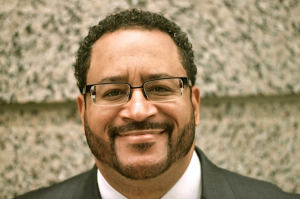

Dr. Michael Eric Dyson, author and Georgetown University sociology professor was the keynote speaker at “The Journey Home”
It’s never easy to talk about death and dying. Unfortunately, putting off the conversation about what you want to happen when you die can leave your loved ones at a loss when the time comes. This can be especially problematic if your culture tends to avoid planning for end-of-life.
Visit the Funeralwise.com funeral planning page
On February 24th, Denver-based organization Compassion and Choices hosted a Washington, DC conference to address the unique perspective of the African American community when it comes to talking about death and dying. According to the group’s website, the conference brought together nationally recognized thought leaders in the fields of theology, medicine and financial planning to discuss the effects of lack of end-of-life planning on the African American community and what can be done to address the issue.
Washington Post writer Hamil R. Harris attended the conference and recently shared conversations he had with conference attendees about what can happen when family members are uninformed about end-of-life wishes.
Lynne T. McGuire, president of McGuire Funeral Service Inc. in the District, said that she wishes that she could have the opportunity to talk with families before someone dies. “It is bigger than just funeral planning. The whole end of life spectrum: How do I want to be cared for ? Folks are starting to talk about it, but we really do need documentation.”
For example, McGuire said the funeral home buried a woman who was 102 and learned too late that her husband who died 60 years ago, was buried at Arlington National Cemetery and there was space for her. “There was a grave reserved for her but it is too late.”
Tiffany Tippins, CEO of Impactful Wealth Solutions, said, “I think the biggest thing I see in planning for death is the lack of planning: Making decisions, letting someone know when you can’t speak for yourself and when you can act for yourself, what do you want to happen.”
Read the full story: Too many African Americans plan too little for death, experts say
More on talking about death and dying in the African American community
The Importance of End-of-Life Planning for African-Americans









